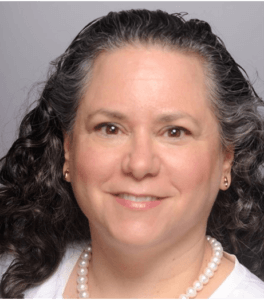This is a guest post from Susan K Finston, President of Finston Consulting. Do you have a response to Susan’s post? Respond in the comments section below.

In recognition of World IP Day, I thought it would be nice to share a hopeful update relating to patentability of emerging Microbiome technologies holding great promise for patients across a range of therapeutic categories.
In Diamond v. Chakrabarty (1980), the US Supreme Court concluded that Congress intended patentable subject matter to include “anything under the sun that is made by man,” including Amrita Therapeutics’ co-founder Ananda Chakrabarty’s modified microorganism (pseudomonas bacterium). Patentability of novel life forms like the famous ‘Chakrabarty molecule’ gave nascent biotech companies and their investors the promise of exclusivity and potential return on investment, launching the American Biotechnology Revolution. The rest is history.
Fast forward to 2017, and the microbiome represents the new frontier in biotechnology. The patent landscape, though, is markedly different from 1980, with recent Supreme Court decisions expanding exceptions to patentability and heightened USPTO patentability requirements for biotech inventions. Now as then, startups rely on patent exclusivity to raise capital, and much digital ink has been spilled on both subject matter jurisdiction (‘products of nature’) and Section 101 (‘obviousness’) issues (paywall). These IP challenges for microbiome technologies have very real implications for patients waiting for new therapies and cures, not to mention microbiome companies and investors needed to fund full commercialization of microbiome technologies.
Amrita Therapeutic’s microbiome research thus far has focused mainly on peptides and proteins related to Mycobacterium Tuberculosis (M. bovis) Protein MPT63, also known as ATP-01, one of nearly 4,000 proteins in the bacteria. M.bovis represents and early example of the efficacy of oncology immontherapy, with continuing reliance on Bacillus Calmette-Guerin (BCG) to treat bladder cancer. Amrita Therapeutics is the first company to study the therapeutic efficacy of individual proteins and peptides relating to M.bovis and now has received its first US patent for modified, truncated peptides related to M.bovis. Our goal is to offer cancer patients new and better oncology peptides and implantable therapeutic devices to combat cancer without the immunogenicity / toxicity of current bacterial immunotherapeutics.
As Aristotle said, “One swallow does not make a summer,” and it is encouraging to see recent patent issuances to a range of companies and institutions for new and important microbiome technologies, including among others, C3J Therapeutics (formerly C3 Jian), Rebiotix, and Synthetic Biologics.
While it may still be extremely challenging for small companies to make it through the expensive, time consuming patent prosecution process – the devil is truly in the details – through careful and painstaking patent prosecution, microbiome companies are in fact receiving patents for modified microbiome bacteria, proteins and truncated, modified peptides.
About Susan K. Finston:
President of Finston Consulting LLC since 2005, Susan works with innovative clients ranging from start-up to Fortune-100 companies, trade associations, foundations and NGOs, providing support for legal, transactional, policy and “doing business” issues. Susan has extensive experience relating to intellectual property and knowledge-economy issues in advanced developing countries including India and South Asia, Latin America and the Middle East North Africa (MENA) region. She also works with governments, and NGOs on capacity building and educational programs. Together with biotechnology pioneer Ananda Chakrabarty, she also is co-founder of Amrita Therapeutics Ltd., a microbiome drug developer. Previous experience includes 5.5 years with the Pharmaceutical Research and Manufacturers of America (PhRMA), where she led the international patent reform advocacy in the MENA region and South Asia (India) and 11 years as a career Foreign Service Officer (FSO) at the US Department of State in Washington DC, and overseas in London, Tel Aviv, and Manila.
Comments are closed.